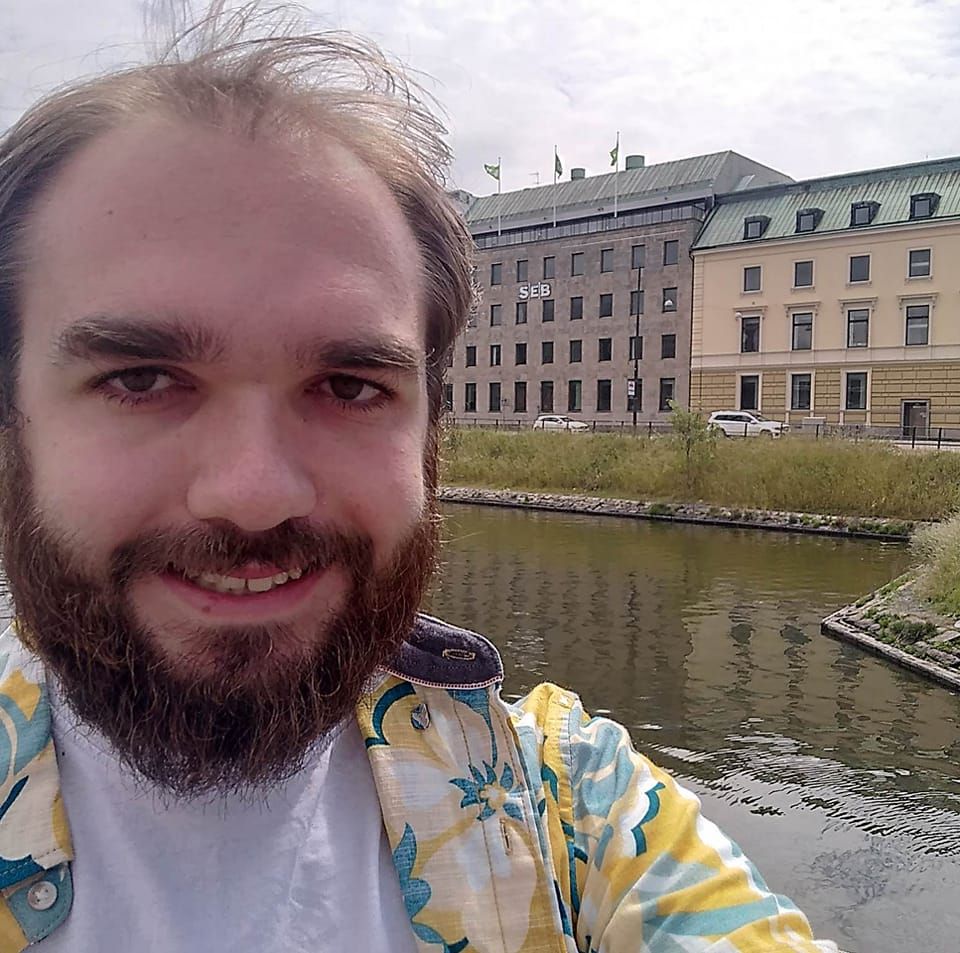Duncan Adamson
Research Fellow and Theme Lead at the Leverhulme Research Centre for Functional Materials Design
Contact Information
|

|
Research Fellow and Theme Lead at the Leverhulme Research Centre for Functional Materials Design
|

|
I am currently a Research Fellow and Theme Lead at the Leverhulme Research Centre for Functional Materials Design.
I am leading the TCS-Chem Subgroup, focused on applying techniques from Theoretical Computer Science (particularly combinatorics on words) to problems originating in Chemistry.
Previously, I was a postdoctoral researcher working on problems in Combinatorics on words, in the Theoretische Informatik group, at the University of Göttingen, and before that I was a postdoctoral researcher at the Icelandic Centre of Excellence in Theoretical Computer Science at Reykjavik University studying distributed colouring problems.
Prior to coming to Iceland, I was a postgraduate researcher at the Department of Computer Science, in the algorithms and complexity research group.
My PhD thesis is titled Algorithmic and Combinatorial Problems in Crystal Structure Prediction, supervised by Prof. Igor Potapov, with secondary supervisors Matthew Dyer and Vladimir Gusev.
I was funded by the Leverhulme Research Centre for Functional Materials Design.
Previously, I completed my undergraduate studies at the University of Glasgow, with my masters project supervised by David Manlove.
My full CV is available here.
A graph of my Mathematical Genealogy can be found here.
Combinatorics on words: My interest on combinatorics on words has been primarily motivated on representing real world objects within a discrete space. In particular, I am been interested in capturing symmetry on words, such as reflective and, in the multidimensional setting, translational symmetries. Going forward I would like to extend more results from one dimension into the multidimensional setting.
k-centre problem for implicitly defined objects (such as graphs and words): Many classes of combinatorial objects can be represented as a weighted graph using some similarity measure to assign weights to the edges. For large graphs, for instance the set of all words of length n, generating the whole graph is impractical. To this end, we seek to take a set of representative samples from the graph. The idea behind the k-centre problem for implicitly defined graphs is to take k samples from some graph that allow the local properties to be determined. At present I have worked this problem for (multidimensional) words, using the overlap distance between subwords as the distance. Going forward, I would like to study more complex objects.
Crystal Structure Prediction: During my PhD I have focused on the problem of predicting the structures of Crystals from first principles. My main results has been on the hardness of this problem, and more recently on approaches to solving similarly motivated problems. Move forward I would like to show undecidability for the general version of this problem
Temporal Graphs: I have recently begun working on the problem of harmonious colourings in the setting of temporal graphs. The initial results have shown that this is a highly challenging problem, even when the underlying graph is a path. The next steps in the project would be to look at solutions to this problem when each time step has been solved.
Stable Matchings: During my Masters (dissertation is available here), I worked on the stable matching problem for incomplete lists with ties. My main result was providing new bounds on the number of blocking pairs for maximum matchings in this setting. Moving forward I would be interested in obtaining similar results for more complex settings such as the kidney exchange problem.
| ISAAC 2023 | k-Universality of Regular Languages |
| WORDS 2023 | Ranking and Unranking k-Subsequence Universal Words |
| SOFSEM 2023 | The k-Centre problem for necklaces |
| ACTO Group Seminar 2022 | The k-centre problem for classes of necklaces |
| DCFS 2022 | Ranking Binary Unlabelled Necklaces |
| SAND 2022 | Faster Exploration Of Some Temporal Graphs |
| HI Mathematics Seminar Series 2022 | Combinatorial Structures for CSP |
| CPM 2021 | Ranking Bracelets in Polynomial time |
| BCTCS 2021 | Ranking Bracelets in Polynomial time |
| BCTCS 2020 | Multidimensional Necklaces: Enumeration, Generation, Ranking and Unranking |
| SOFSEM 2020 | Crystal Structure Prediction by Vertex Removal in Euclidean Space |
| BCTCS 2019 | Crystal Structure Prediction by Vertex Removal in Euclidean Space |